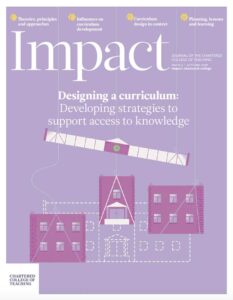‘Shakespeariences’ in the classroom: Why bother with Will?

I am a confirmed, incurable Bardolator. My first brush with Shakespeare was a striking promenade performance of Macbeth at the Arcola Theatre when I was thirteen. As a teacher, I strive to create similar moments to captivate my students. Thomas (Thomas, 1998) comments that ‘we’ve lost sight of the things that made [Shakespeare] popular with ordinary people in his own day – his ability to write vividly and memorably for performance.’ I want students to know ‘we no longer have “Shakespeare”, but rather “Shakespeares” (Hulbert et al., 2009) and ‘their Shakespeare’ has value. With this in mind, I reflect on some of the issues surrounding the study of Shakespeare, through my own Shakespeariences in the classroom.
Early on with a new GCSE class, I asked students to respond to the following: All students must study a Shakespeare play as part of their English GCSE. Do you agree with this idea? I thought this would be an effective way to gauge individuals’ writing styles, as well as providing students with a chance to deliberate why we study Shakespeare. Gibson (Gibson, 2016) suggests that ‘students should be involved in discussion of assessment criteria and procedures’, and I was eager to have their input. The responses collected were varied, but most discussed something of the following:
Studying Shakespeare:
- challenges our understanding of complex language
- helps improve grammar and vocabulary
- helps us learn about life in Shakespearean times
- helps our own writing
- gives us a better appreciation of culture.
Remarkably, none of the students had considered the idea of gaining pleasure or enjoyment from studying Shakespeare. Their responses were tied up with notions that ‘Shakespeare is good for you’ – ideas that stem from the canonization of Shakespeare’s work over centuries. Therefore, my central aim moving forward was to create opportunities for my students to enjoy the study of Shakespeare.
Students respond well to being challenged, particularly in areas that they deem ‘intellectual’ and Shakespeare’s language is often the most feared aspect to grasp (Yandell and Franks, 2009). Prior to looking at Macbeth Act 2 Scene 2, my students were loosely able to define iambic pentameter – 10 syllables of a specific rhythm. Instead of ‘correcting’ their understanding, I set students a flipped learning task, to watch part of a lecture given by Ben Crystal (Crystal, 2014), which explained his interpretation of Shakespeare’s rhythms and language choices. Ben Crystal, along with many Shakespeare enthusiasts, argues in favour of active approaches. As Gibson (Gibson, 2016) states, ‘Shakespeare is drama, and drama is at heart a group experience, social and participatory, but assessment in school and college is almost entirely of the individual student.’
Crystal’s lecture covers a lot of intricate language analysis and relies heavily on seeing the text in performance. For this reason, I was hopeful that my students would respond well to it. After viewing the lecture, my students were not only able to speak about iambic rhythms in depth, but they were clearly engaged by the concept, as evidenced by one student’s comment that Crystal’s remark about the alliterative phrase ‘crickets cry’ put him at ease and showed him that there can be enjoyment in language. Suddenly my students were able to understand that Shakespeare isn’t inaccessible and irrelevant; he was a man trying to write things to please audiences. I recently asked my students, now in Year 11, to reflect on why they had liked this particular task more than others and they referred to the idea that it was ‘intellectual’. The importance of ‘iambic pentameter’ had become so much more than something to define: for my students, it became inextricably linked with meaning and an almost visceral experience of the drama. Seeing this lecture also allowed my students to understand how Shakespeare would have created the play.
Putting the play in context features in assessment objectives, but to me it is crucial to their understanding and enjoyment of the play. To know that the supernatural was seen as a real threat in the Jacobean period changes your understanding of the role of the witches, in the same way that knowing how Shakespeare would have collaborated with his ensemble changes interpretations of language choices, such as iambic pentameter.
Yandell and Franks state that ‘the danger is that what is assessed ends up being the pupils’ knowledge of someone else’s Shakespeare’ (Yandell and Franks, 2009) . I’ve found that encouraging students to connect with Shakespeare’s language on a personal level mitigates this danger.
In a post-study evaluation, many students mentioned enjoying ‘close analysis of the language’, while others went so far as to state they were intrigued to understand ‘how Shakespeare wrote’. The students’ responses were individual and varied, and reflected Gibson’s idea that ‘successful Shakespeare teaching is learner-centered.’ (Gibson, 2016) More importantly for me, it was clear that I had several new Bardolators on my hands, and I was thrilled!
References
Crystal, B (2014) Speaking the Bright and Beautiful English of Shakespeare. British
Council, English Agenda. YouTube: 21min (accessed August 2016).
DfEDepartment for Education - a ministerial department responsible for children’s services and education in England (2007) The National Curriculum: Programme of study for Key Stage 4. DfE, London.
Gibson, R (1998) Teaching Shakespeare. Cambridge: Cambridge University Press.
Hulbert, J, Wetmore Jr, KJ, York, RL (2006) Shakespeare and Youth Culture.
New York: Palgrave Macmillan.
Shakespeare, W (2009) Macbeth. Oxford: Oxford University Press.
Thomas, P (1998) Shakespeariences, Sheffield: NATE.
Yandell, J and Franks, A (2009) Approaching Shakespeare. In Davison, J and Dowson, J (eds.)
Learning to Teach English in the Secondary School. Oxon: Routledge.
This article was published in September 2018 and reflects the terminology and understanding of research and evidence in use at the time. Some terms and conclusions may no longer align with current standards. We encourage readers to approach the content with an understanding of this context.










